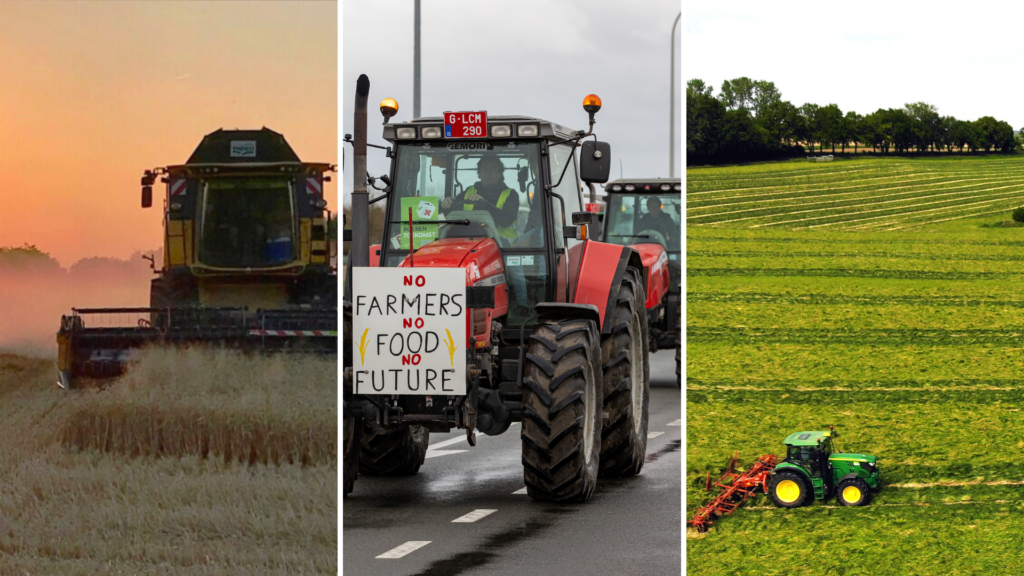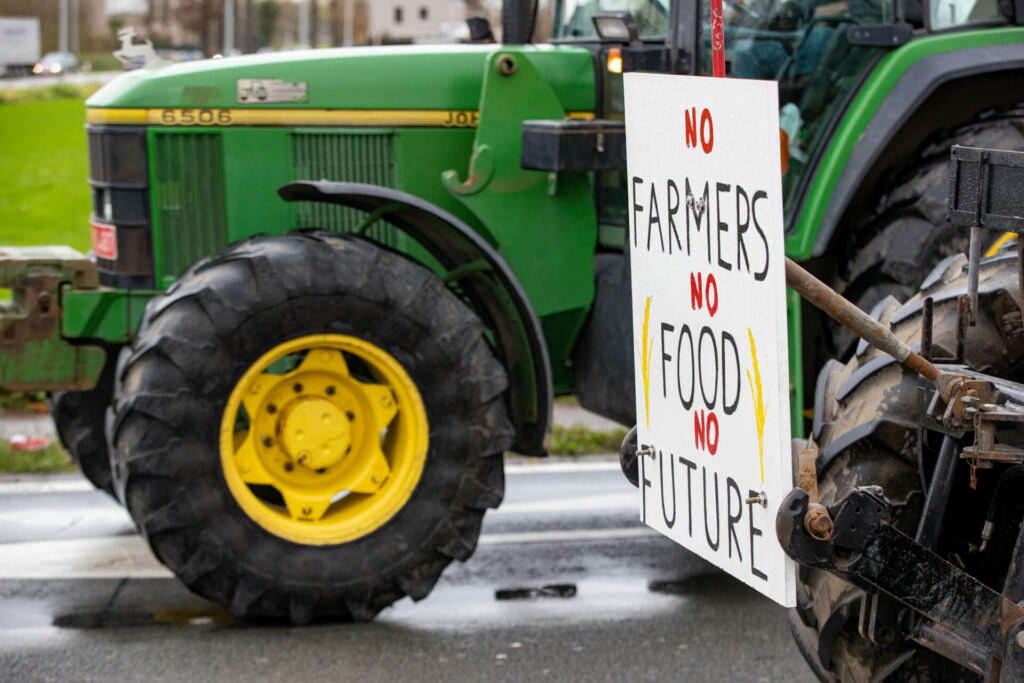The city/country divide isn't just a physical distinction – the divide marks the mindsets of the people on the ground. And though the distance between Brussels and the fields isn't great, the desires and demands of rural and urban are right now out of tune. The result is a major rift in the Flanders government, which has become embroiled in a deadlock over the region's proposed nitrogen policy.
In brief, the region needs to clamp down on nitrogen emissions in order to comply with EU targets. The proposed changes will come down hard on farmers whose agricultural practices have paid virtually no consideration to the environmental impact of drenching land in fertilisers and pesticides.
But Flanders must now clean up its act if it hopes to receive any of the (enormous) subsidies provided by the EU's Common Agricultural Policy. The problem is that whilst the sector depends on these funds to subsist, it isn't possible for Flanders to maintain all its farms and remain within the emissions limit.
The solution? The regional government has proposed a nitrogen policy that identifies the most polluting farms, which will have to close by 2025. Predictably, the bill has gone down like a lead balloon with the industry, notwithstanding the compensation those forced to end operations would receive.
And with Belgium's regional governments also broad-church coalitions like the Federal Government, discord between governing parties has paralysed progress on the issue. The inevitable losers are, of course, the farmers: not only will they have to adjust to greener methods (or in some cases close), they also are deprived of the substantial EU subsidies as long as the government can't reach an agreement.
So in a display of frustration and existential concern, farmers from across Flanders will roll into Brussels tomorrow – their procession of tractors making clear to lawmakers the sector's plight. And though the protest will provide bystanders with a spectacle of defamiliarisation, the stakes are considerable in an era of shaky food security.
Pitchforks at the ready? Let @Orlando_tbt know.
Belgium in Brief is a free daily roundup of the top stories to get you through your coffee break conversations. To receive it straight to your inbox every day, sign up below:
1. Belgium in top 5 for highest naturalisation rate in the EU
Belgium has the fifth highest naturalisation rate in the EU, with 2.7 people receiving Belgium citizenship for every 100 non-national residents, according to statistics published by Eurostat, the European Union’s statistics agency. Read more.
2. Farmers protest: Major traffic disruptions expected in Brussels on Friday
The major tractor convoy expected in Brussels on Friday 3 March will cause severe traffic disruptions across the Brussels region, the police warned. Read more.
3. A major reform: Belgian salaries to increase by €835 from next year
The Federal Government is planning to introduce a major tax reform which could see net salaries in Belgium increase by an average annual amount of €835 as early as next year, l'Echo and De Tijd report. Read more.
4. Delhaize CEO takes home €6.5 million paycheck
Frans Muller, CEO of multinational retail and wholesaling company Ahold Delhaize, which runs Delhaize, Albert Heijn, and Bol.com in Belgium, earned €6.519 million in the 2022 financial year, according to an annual report published by the company. Read more.
5. 'Woke ideology' sparks dispute between academics and liberal politicians
Belgian university professors Pascal Delwit and Vincent Laborderie have criticised a recent study by liberal think tank Centre Jean Gol on "wokism", La Dernière Heure reports. Released on Tuesday, the liberal think-tank's findings lacked scientific legitimacy, Delwit asserted. Read more.
6. Geneviève Lhermitte, convicted in 2008 of killing her five children, has died
Geneviève Lhermitte, sentenced in 2008 to life imprisonment for killing her five children, has died, Sudinfo newspapers wrote on Thursday morning. Read more.
7. Hidden Belgium: Minerva Fountain
The Minerva Fountain on the Place du Sablon in Brussels barely produces a trickle of water these days, but it once supplied water for the entire neighbourhood. It was paid for by a Scottish aristocrat, Thomas Bruce, the Third Earl of Elgin, who fled to Brussels in 1696 to avoid being executed as a traitor. Read more.


